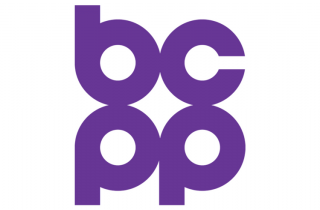Food Safety Loophole Allows Secret Toxic Chemicals in Our Food
At a Glance
Federal food safety law contains a major loophole that allows harmful chemicals in our food.
The Generally Recognized As Safe (GRAS) provision, which permits common chemicals like salt or nutmeg to by-pass FDA safety reviews, has become the procedural superhighway through which chemical manufacturers secretly use chemicals for food packaging and processing without FDA oversight, approval, or knowledge.
BCPP is working to close this dangerous loophole that undermines food safety for all of us.
Get the Fact Sheet
Overview
FDA burying its head in the GRAS on toxic chemicals in food packaging & processing
For decades, food chemical manufacturers have taken advantage of a Generally Recognized As Safe (GRAS) loophole created by the Food Additives Amendment of 1958. This amendment to the federal Food, Drug, and Cosmetic Act of 1938 prohibited the use of food chemicals that are not adequately tested for safety, and also created an exemption for chemicals that are “generally recognized as safe” for specific uses. The exemption was designed to account for common ingredients with established safety records like vinegar, salt, and flour, but over time, the food industry has increasingly taken advantage of this loophole to bypass FDA scrutiny on chemicals with unknown health effects—including some chemicals now known to cause serious health harm.
Over the years, the FDA has chosen not to use its authority to ensure the safe use and implementation of the GRAS program, instead allowing companies to make their own secret determinations about whether a chemical is safe for use in food. As a result, food manufacturers have taken advantage of the GRAS loophole to self-certify the safety of chemicals with known negative health effects. For example, Butylated hydroxyanisole, a California Proposition 65-listed carcinogen that also causes hormone disruption and male reproductive toxicity is a GRAS-designated chemical that is used in cereals; diced, glazed fruits; dehydrated potato flakes; dry active yeast; mixes for beverages and desserts; chewing gum; potato chips; and vegetable oil. It also gets into food by migrating from food packaging (where it is used as an adhesive). In 1978, the Select Committee on GRAS Substances said more studies were needed, which means there was not enough scientific evidence to be sure the BHA was safe. By 1986, however, the International Agency for Research on Cancer, which has the most stringent standards in the world for assessing carcinogenicity, concluded BHA is a probable human carcinogen. The FDA did initiate its own in-depth assessment on BHA in 1993-94, but the final report avoided taking a conclusion about its probable carcinogenicity, again recommending more studies. To date the FDA has not.
The GRAS loophole has now become the main process by which food manufacturers introduce any new chemical into use, not just chemicals that would logically be deemed generally recognized as safe. Under existing law, companies are not even required to notify the FDA what chemicals they consider to be GRAS, and how they are using those chemicals. This means chemicals are getting into our food without any FDA oversight or even FDA knowledge of their use. If companies do choose to notify the FDA of their intended use of a GRAS chemical and the FDA expresses concern in response, companies can and do withdraw their notifications, and proceed to use the chemical in secret.
How we got here
Since 1958, the GRAS exemption has been creating problems and drawing criticism. After deploying an expert panel to review 400 GRAS designations in the 1970s under orders from President Nixon, the FDA reformed its processes so that it would review and either confirm or reject company-initiated GRAS designations. But in 1997, the FDA reversed course and proposed a draft rule that made industry notification of its GRAS designations to the FDA voluntary. The GRAS program operated for nearly 2 decades under this unfinished rule until a 2014 NGO lawsuit forced the FDA to finalize the rule in 2016, providing the FDA with an opportunity to strengthen GRAS requirements.
Unfortunately, the FDA failed to act in the public interest and instead issued a rule that continues and solidifies many aspects of twenty years’ failed practice. This includes allowing companies to introduce new chemicals or new uses of existing chemicals to the food supply without notifying the FDA, enshrining the fundamental conflict of interest industry has in making safety determinations. This, of course, leaves not only the agency, but also consumers, completely in the dark about chemicals in our food. At current count, it is estimated that around 1000 chemical uses have been certified safe under GRAS with no notice to the FDA.
Health and food safety groups push back
At that point, NGOs stepped in again and challenged the FDA in federal court. BCPP joined the Center for Food Safety (CFS), the Center for Science in the Public Interest, the Environmental Defense Fund and Environmental Working Group, represented by Earthjustice, to challenge the legality of the FDA’s final rule, and how it interprets and implements the GRAS exemption. The suit argued that the FDA can’t carry out its duty to ensure the safety of food before substances enter the food supply or after problems occur because of the lack of mandatory notification. It also argues that the FDA was wrongly delegating its core duty to ensure food safety to companies.
The court judgment, in October 2021, put the responsibility on Congress to deal with the GRAS problem. The Court judgment found that the FDA’s interpretation of the 1958 Food Additives Amendment Act, which allows industry to make GRAS decisions in secret without notifying FDA, is an allowable reading of the law. Therefore, the only way to get the FDA to change its approach would be for Congress to change that law. The judge was explicit, writing “The remedy Plaintiffs seek lies with Congress, not me…”.
Congressional efforts to reform food safety laws
In 2010, two members of U.S. Congress, former Senator Tom Harkin (D-IA) and Representative Rosa DeLauro (D-CT), asked the Government Accountability Office to scrutinize the FDA’s GRAS program. The GAO issued a report titled “FDA Should Strengthen Its Oversight of Food Ingredients Generally Recognized as Safe.” The report found that the FDA’s oversight process doesn’t ensure the safety of chemical uses certified by the food industry as GRAS, and that the FDA is not systematically ensuring the continued safety of current GRAS chemicals. To date, the FDA has either ignored or not finished work to respond to some of the GAO recommendations, including to require basic information from companies, to minimize the companies’ conflicts of interest, and to systematically review the safety of GRAS substances.
In June 2021, Representative Rosa DeLauro introduced the Toxic Free Food Act. This bill would require the FDA to close the GRAS loophole and require FDA review for chemicals used in direct additives and in food packaging and processing that companies want to designate as ‘GRAS’. Specifically, the bill lays out a timeline for the FDA to propose and finalize a rule that includes:
- Mandatory notification: The manufacturer must notify the FDA of any GRAS substance or food that contains a GRAS substance.
- Mandatory Data: The manufacturer must give the FDA enough information to understand the GRAS designation including how the manufacturer addressed:
- Cumulative effects,
- Adequately protective safety factors, and
- Use of a safety buffer for vulnerable populations and sensitive developmental phases.
- Transparency: GRAS designations and supporting information made available on the FDA website.
- Public input: FDA and the public can review and object to any GRAS designation.
- Exclusions: No newly synthesized, novel, or carcinogenic chemicals can be GRAS.
- Conflict of Interest: Bars the use of expertise from specialists with conflicts of interest.
- Best Practice: Deploys recommendations of draft FDA guidance on Best Practices for the industry-convened Panel assessing the safety of potential GRAS substances.
- Systematic reassessment: FDA to set up a process for systematically reassessing any previously designated GRAS substances, aided by a re-established Food Advisory Committee.
Our work
BCPP is working to build congressional support for this bill, as well as support from a wide array of public interest groups, health professionals, consumers, and companies who believe in healthy, non-toxic food and food packaging. Our NGO partners working to secure passage of this important bill include: Center for Food Safety, Center for Science in the Public Interest, Consumer Reports, Defend our Health, Earthjustice, Environmental Defense Fund, Environmental Working Group, and Healthy Babies Bright Future.
Take Action to Make Food Safer for All
Fact sheet
Press releases
May 23, 2017 Groups Sue FDA to Protect Food Safety
June 4, 2021 DeLauro Introduces Legislation to Keep Dangerous Chemicals Out of Food Supply
Types: Article, Fact Sheet



